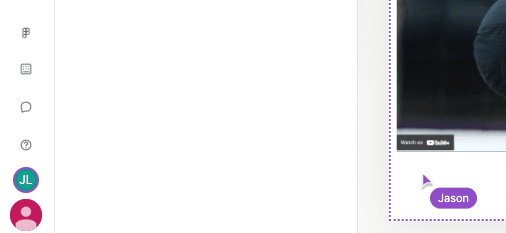Collaboration
You can invite other Plasmic users into your organizations, workspaces, and projects.
Project roles
This page is about project roles in Plasmic Studio. For docs on roles for your app’s users, check out the user authentication & permissions page.
There are four different kinds of roles a Plasmic user can have:
- Developer — An editor who can do almost anything.
- Designer — An editor who has full control over styling and content. Only available for Basic or higher tiers.
- Content creator — An editor who has full control over content but limited control over styling. Exactly what they can do can be configured per workspace and per project. Only available for Growth or higher tiers. Read more about content creator mode.
- Viewer — A viewer who cannot edit anything.
Organizations and workspaces
Organizations (formerly known as teams) and workspaces are used to manage your users and projects. You can view, manage, move, or delete them in Plasmic Studio on the left panel.
An organization…
- has a billing plan
- contains users and their roles (default role for all projects under the organization)
- contains workspaces
A workspace…
- contains projects
- contains integrations like Plasmic CMS or other integrations
My Playground
My Playground is a special workspace where new projects go by default. This is a great space for testing out new ideas. Projects in this workspace can be moved to other workspaces when ready.
Inviting users
There are multiple ways to invite users to work with you on your projects.
The most basic way is to invite users on a per-project basis. Open your project in Plasmic Studio, and click the “Share” button on the top-right. Here, you can invite a user by email or share an invite link.
If you work with the same users on multiple projects, you may want to add them to your organization. Open Plasmic Studio, click on your organization on the left panel, then click the gear icon to open organization settings. Similar to inviting per-project, you can invite by email or share an invite link. For each user, you can set a role, which is their default access for all projects under the organization.
Multiplayer
When multiple users are editing or viewing the same project, you’ll be able to see who it is and where their cursor is. Click on a user to start following their screen.

Branching
Branching is another way that simultaneous collaboration can happen within the same project, but unlike multiplayer, different users’ work is isolated to their own “branch” or copy of the project—these are meant to be merged later. Learn more about branching.
Have feedback on this page? Let us know on our forum.